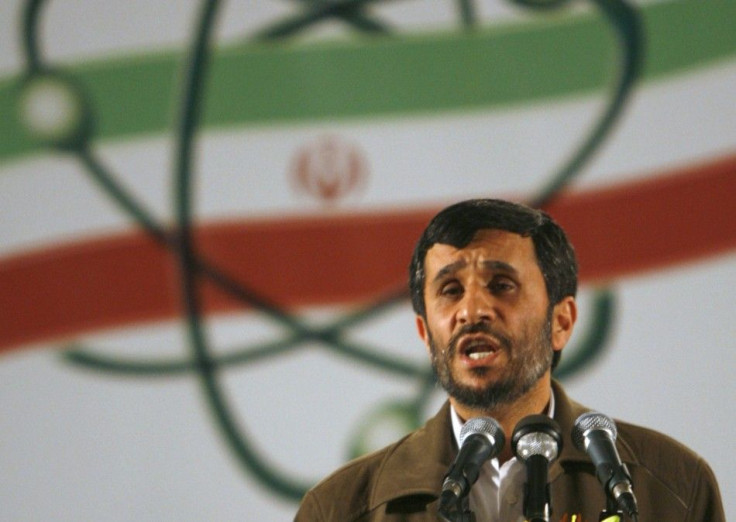Arab Spring Headed to Iran, Warns Senior Muslim Brotherhood Member

A senior Muslim Brotherhood member and the head of the foreign affairs committee in the Egyptian parliament said on Monday that the popular political uprising that swept across the Middle East last year, overthrowing many dictatorial regimes including that of Egypt, is headed to Iran.
Essam al-Arian, an Egyptian lawmaker, said Egypt could potentially lead the changes in the region in the wake of the political turbulence referred to as the Arab Spring, Israeli newspaper Haaretz reported.
This is the first instance of a senior and official representative of the Muslim Brotherhood speaking publicly about the possibility of the revolution reaching Iran.
The foreign affairs committee slammed Egypt's decision to allow two Iranian warships to enter the Mediterranean which was widely perceived as Tehran's stunt to show its might to the regional nations and archenemy Israel.
Al-Arian explained that Egypt allowed Iranian warships as the country had to abide by international treaties.
Iran's warships entered the Mediterranean two weeks ago in the wake of the U.S. National Security Advisor Tom Donilon's visit to Israel to discuss Iran's nuclear weapons program with Prime Minister Benjamin Netanyahu. This is only the second time since the 1979 Islamic revolution that Iranian ships passed through the Suez Canal.
Though Iranian President Mahmoud Ahmadinejad has shown particular interest in providing financial aid to Egypt and increase Iran's investment in the country, Muslim Brotherhood doesn't seem too keen about accepting the proposal, Haaretz reported.
Iran isn't unaware of the possibility of a popular uprising against the repressive regime and has been preemptively blocking Internet usage of its citizens, due to the major role played by online social networking in coordinating the Arabian dissent.
Millions of Internet users in Iran were denied access to popular social networking sites, including Facebook, and email services like Gmail, Yahoo and Hotmail since the beginning of this month, an Iranian news agency had reported.
Iran allegedly blocked the sites on the eve of 33rd anniversary of the 1979 Islamic Revolution, as the authorities fear an uprising sponsored by the opposition during the month-long celebration.
The Iranian mass protests in 2009 against the disputed re-election of Ahmadinejad were also greatly coordinated over social networking sites.
A recent report by Amnesty International claimed Iran's crackdown on freedom of expression has dramatically escalated in the run-up to the parliamentary elections.
In Iran today you put yourself at risk if you do anything that might fall outside the increasingly narrow confines of what the authorities deem socially or politically acceptable, said Ann Harrison, Interim Deputy Director of Amnesty International's Middle East and North Africa Programme.
Anything from setting up a social group on the internet, forming or joining an NGO, or expressing your opposition to the status quo can land you in prison, she said, adding, this dreadful record really highlights the hypocrisy of the Iranian government's attempts to show solidarity with protesters in Egypt, Bahrain and other countries in the region.
© Copyright IBTimes 2024. All rights reserved.






















